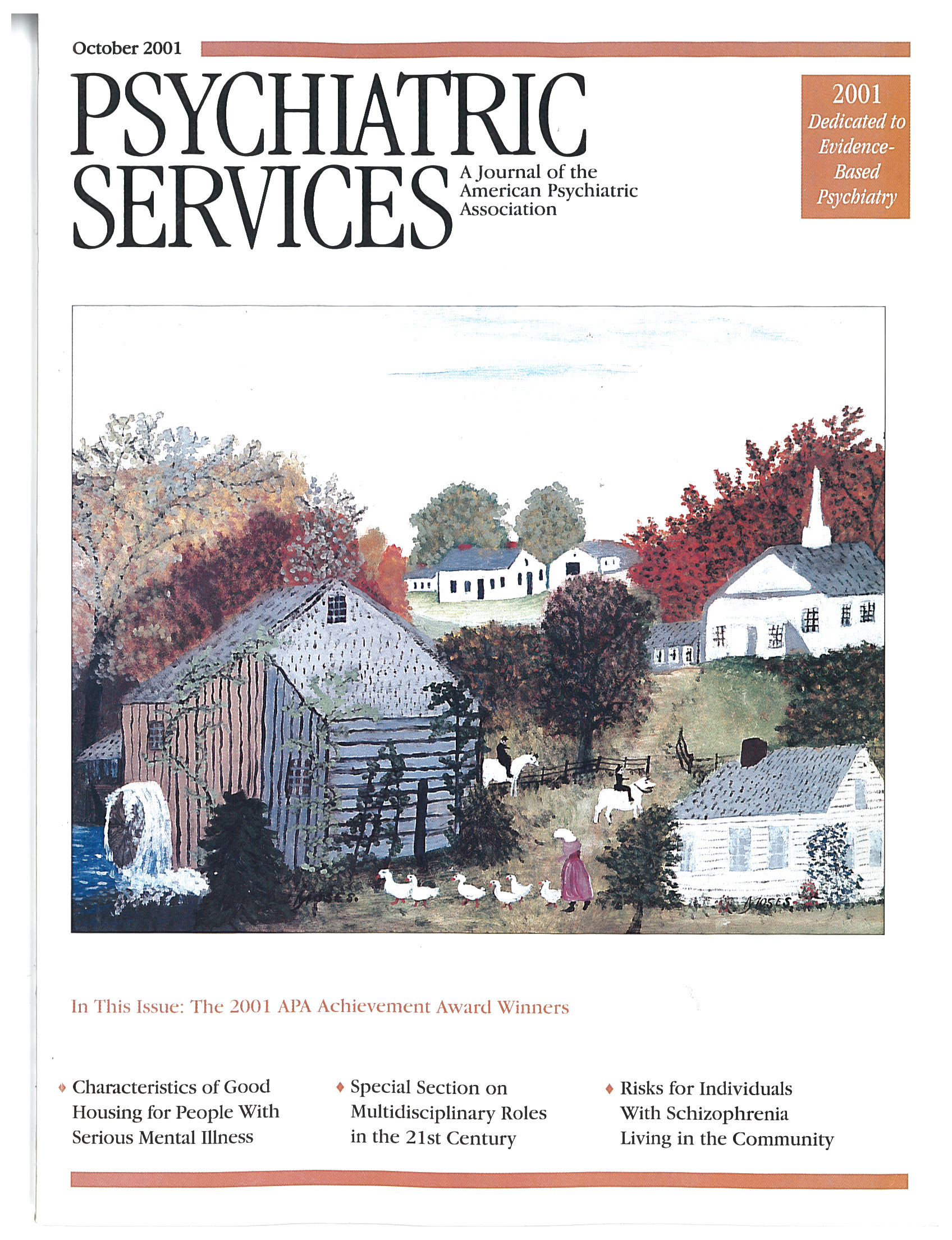To the Editor: In "Moving Assertive Community Treatment Into Standard Practice" in the June issue (
1), the authors asserted that research has shown that this type of program is effective in reducing hospitalization and is more satisfactory to consumers and no more expensive than standard care. I disagree.
First of all, it is amazing that after 30 years of research the only justification for all the political and professional activity undertaken to implement assertive community treatment as the routine federally subsidized approach to the care of severely mentally ill persons is that it reduces hospitalization and is more satisfactory, but not less costly, than standard care. No one seems to find it problematic that assertive community treatment is no more effective than standard care in reducing symptoms or in improving the psychosocial functioning of patients, even though its inventors acknowledged that these were their aims.
As Dr. Test and her colleagues noted in 1985 (
2), "We are well aware of the problems when hospitalization is used as a measure of outcome, and we look forward to the examination of our short-term (two-year) findings on other measures of psychosocial functioning." In an article published six years later, Dr. Test and her coauthors (
3) stated, "Analyses of data related to additional outcome variables, including symptomatology . . . during the first two years are currently in progress and will be reported in future papers." However, Dr. Test's group has never published results of such outcomes, not even for the longest study of assertive community treatment ever conducted, which lasted for 14 years.
I have written extensive critiques of the effectiveness claims for assertive community treatment and have also pointed out some potentially harmful outcomes (
4). All I can offer briefly here is evidence of the inaccuracy of the most important claim to effectiveness found consistently in the empirical literature on assertive community treatment—the claim that assertive community treatment reduces hospitalization. I have argued that reduced hospitalization is not the result of assertive community treatment but simply the tautological result of administrative decisions to treat all assertive community treatment patients in the community regardless of symptoms and their severity while patients in the control group are not subject to such a rule and are thus hospitalized frequently. If such an administrative rule were adopted for any other treatment approach, similar results would be obtained.
Test and Stein, the inventors of assertive community treatment, admitted this in 1978 (
5): "Community treatment results in less time spent in the hospital. This finding is certainly not surprising since experimental patients were usually not admitted to hospitals initially and there were subsequent concentrated efforts to keep them out."
The fact is that most of the literature on assertive community treatment is written by experts on this approach, who may have something to gain by presenting this intervention less than objectively. Most of the outcome claims are taken at face value and are not subjected to close internal review to determine whether they are validly supported by the methods used. I would recommend further public discussion of these issues as well as others, such as the therapeutic value of the coercion on which assertive community treatment is based. Critical debate is the hallmark of scientific progress and should involve not just the promoters of assertive community treatment but also critics like myself before the field moves to implement this approach as one of the basic tools in the "toolkit" of the Evidence-Based Practices Project.

